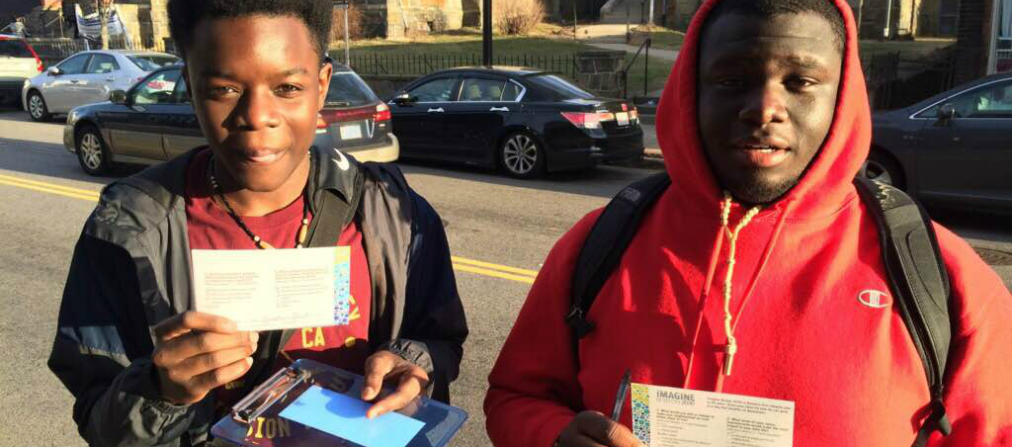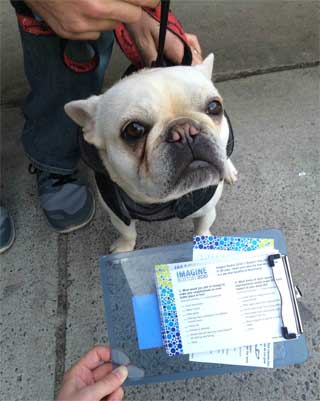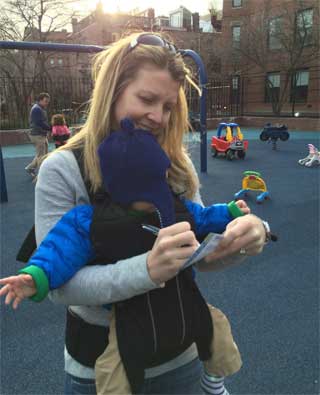Imagine Boston 2030: Dispatch from the field
The Imagine Boston Street Team shares some insights from City residents.
Dear Bostonians,
Greetings from Jake, Anya, Jason, AJ, Brittany, Stephen, Raquel, James, Tim, and Nhi (the Imagine Boston 2030 Street Team). It’s our job to be out in the neighborhoods every day talking to Bostonians, getting people to engage in Imagine Boston’s citywide planning process. We’ve been walking Boston’s neighborhoods for three weeks and so far, we’ve had almost 5,000 conversations with Boston residents about the future of their city. It’s been a fascinating experience.
Here are the issues that we are hearing about most:
1. Housing Affordability
The issue most on residents’ minds is housing affordability at different income levels. This is no shock to those of us who rent and own homes in the city. Bostonians at every income level are feeling the squeeze of living in a growing city – the city’s housing supply hasn’t kept up with our growing population, causing prices to rise.
Frank from Dorchester said, “My kids grew up in Dorchester but they’re moving to Quincy because they can’t afford to buy in our neighborhood. The city should create more housing for working people. And we don’t just need affordable housing, it needs to be T accessible.”
As Bostonians, we can do something about this challenge. As part of our citywide plan, Imagine Boston will identify areas where new housing can be created to reach the City’s goal of producing at least 53,000 additional units of housing, which includes nearly 27,000 units of workforce housing. Boston’s growth provides us with the opportunity to make investments that will address challenges, including housing affordability, so that we can improve quality of life for all Bostonians.
2. Better transit and streets that are safer for walking and biking
Transportation is the second most pressing issue that we’ve been hearing about, with Bostonians suggesting a number of alternative transportation options in their vision for the city. Theresa and Laura from East Boston both suggested a ferry to downtown Boston, several North End residents highlighted the need to repair sidewalks and improve accessibility, and Quenton from Roxbury said “More buses!”
Imagine Boston 2030 gives us an opportunity to plan the physical space of our city in a way that makes all forms of transit safer, an initiative also supported by Go Boston 2030. Based on public input, we are developing strategies to improve bike, pedestrian, bus and train mobility, in order to better connect Boston neighborhoods and encourage Bostonians to take more trips on public transit. Additionally, the mayor has also embraced Vision Zero, a mission to bring annual fatalities due to car, pedestrian, and bike collisions down to zero. Through these different initiatives, we can ensure that Boston’s streets stay safe and well-connected.
3. Getting involved
Our goal, as a street team, is to meet Bostonians where they already are- on the T, in their coffee shop or at their local library, and hear from them about the issues that impact them on a daily basis. In every neighborhood, when you talk to residents you realize that regardless of how busy they are, they’re still well informed about the city’s issues and they want to help bring about change. Boston’s growth offers us an opportunity to harness and guide our growth to make the city more inclusive and equitable.
As we continue this street team campaign over the month of March, we will talk to as many Bostonians as we possibly can. We’ll grab them on their lunch break, or waiting for a train, or at their kids’ basketball game. Because if we want Boston to be a healthy, thriving, innovative city in 2030, we need input from all of Boston’s workers and families. And for this planning process to be effective, it’s essential that our input reflect the diversity of all of Boston’s residents.
Jake Hasson, Street Team Coordinator




